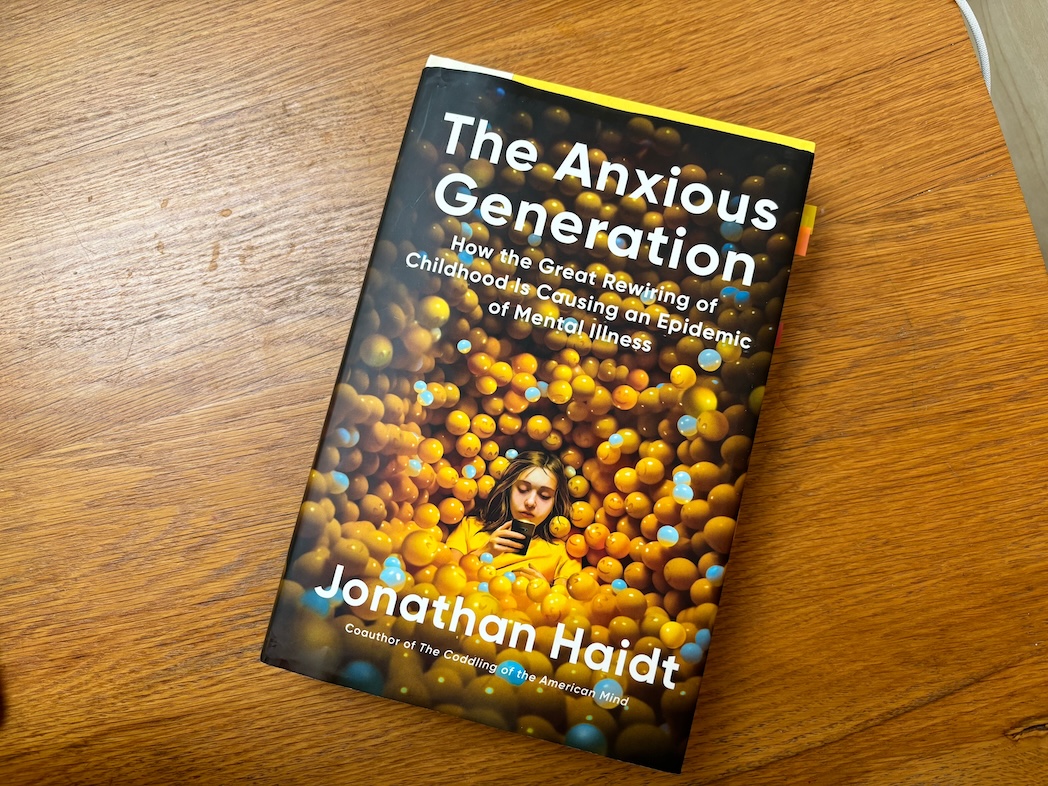
"The Anxious Generation by Jonathan Haidt" explores the significant decline in youth mental health observed in the 2010s, particularly in Western countries. I found this read to be beyond topical, given many of the challenges I have observed my own nieces and nephews struggle with. Covid lockdown, and 2020 in general, was particularly on many young people -and Haidt's book really puts a clear explanation as to why. Haidt argues that this decline in mental health among our youth is closely linked to two major shifts in childhood: the decline of play-based childhoods and the rise of phone-based childhoods.
He explains that free play, which was common in previous generations, allowed children to develop crucial social skills, resilience, and independence. However, due to increased parental fears and changing societal norms, children now have fewer opportunities for play and exploration as a means to problem-solving and growth.
Concurrently, the widespread adoption of smartphones and social media has fundamentally altered how young people interact and spend their time. Haidt shows how this shift has led to several negative consequences, including increased social comparison, cyberbullying, sleep deprivation, and a distorted perception of reality. He argues that social media platforms are designed to be addictive, keeping users engaged for extended periods and potentially harming their mental well-being. As an adult who recently shut down his X-Twitter account, I cannot disagree.
Haidt really gets into concerns a lot of parents have had about smartphones for some time now, but he also addresses the issue of "safetyism" -- an overprotective parenting style that prioritizes physical safety over children's autonomy and development. He contends that this approach can hinder children's ability to learn from their experiences and develop the resilience needed to navigate life's challenges.
My Takeaways...
• Decline in Youth Mental Health: There has been a significant increase in anxiety, depression, and self-harm among adolescents in recent years. Play-Based vs.
• Phone-Based Childhoods: The decline of free play and the rise of smartphones are major contributing factors to this mental health crisis.
• Impact of Social Media: Social media can lead to social comparison, cyberbullying, sleep deprivation, and a distorted perception of reality.
• Safetyism and Overprotective Parenting: Overprotecting children can hinder their development of resilience and independence.
• Potential Solutions: Delaying smartphone access, creating phone-free spaces, and encouraging outdoor play can help improve youth mental health.
This book, a lot like Haid's other books The Coddling of the American Mind and The Happiness Hypothesis (both great reads themselves), is an eye-opener to something most of us felt was a growing issue. It offers potential solutions to mitigate the negative effects of phone-based childhoods, including delaying smartphone access until ast late as high school (hard to say how realistic that would be). He also discussses how creating phone-free spaces and times, and encouraging more outdoor play and social interaction can reduce these harms. Haidt emphasizes the importance of collective action from parents, schools, technology companies, and policymakers to create a healthier environment for young people.